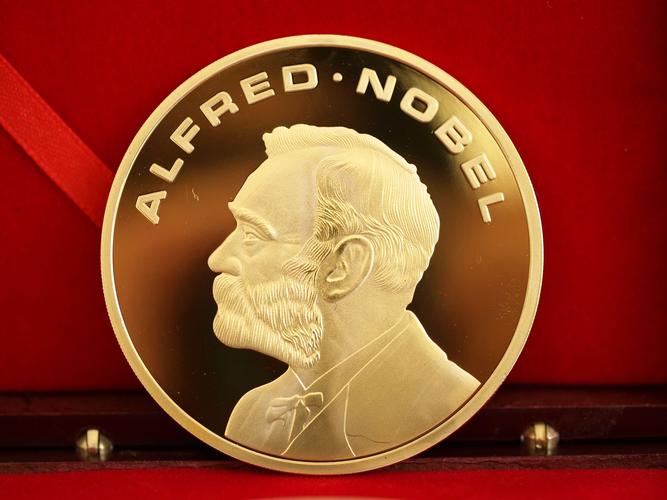
The 2024 Nobel Prize for Physics went to two artificial intelligence (AI) scientists, one of whom Geoffrey Hinton as the “Godfather of AI”, and the 2024 Nobel Prize for Chemistry, there are also two scientists/entrepreneurs in the field of AI, which has caused great controversy in both the scientific community and society. While there have been Nobel Prize in Literature cases such as the Bob Dylan of famous American musicians and writers, both Physics and chemistry have been awarded to experts in disciplines that are not traditional equivalents, it is indeed rare in the history of Nobel Prizes. What does this say about the Nobel Prize itself and about scientific research?
In fact, the increasing number of Nobel prizes awarded to scientists for interdisciplinary work has been a major trend, as many questions of contemporary science have interdisciplinary attributes, this needs to be addressed through the integration of knowledge across disciplines, and related research results are increasingly emerging from cross-disciplinary areas. Statistics show that about 19 per cent of the Nobel prizes awarded in the field of natural science between 1901 and 1920 had interdisciplinary characteristics; in the 21st century, this proportion has increased to more than 40 per cent.
But awarding the Nobel Prize to an artificial intelligence or computer scientist, such as a Geoffrey Hinton, is different from the usual cross-disciplinary approach. After all, computer science and physics are too far apart in the mainstream. Such“Contrasts” and controversies also reveal a problem: the Nobel prize, which aims to“Reward those who have made the greatest contribution to humanity in the past year”, can it also cover or“Adapt” to emerging disciplinary fields and scientific outcomes?
The Nobel Prize was first awarded more than 120 years ago in 1901, when the discipline classification was vastly different from today’s. For example, computer science was born after 1946 with the advent and widespread use of computers, while the current hot topic of artificial intelligence was not formally introduced until 1956, it has been less than 70 years since some scientific research institutes or colleges set up AI majors or related colleges, and it has only started in recent years. With the development of science, human cognition becomes larger and larger in scale and scope, but it is more and more difficult for traditional disciplinary division to cover new disciplinary fields. This trend is reflected in the Nobel Prize, which is set up according to the traditional model is increasingly difficult to reflect the major advances in human science.
To this end, in recent years, many people have suggested that the Nobel Prize set up a new discipline awards, more in line with the times to reflect the latest advances in contemporary science. In 1968, to celebrate its 300th anniversary, the Swedish national bank decided to launch a “Sveriges Riksbank Prize in Economic Sciences in Memory of Alfred Nobel” in honour of Nobel in 1969, and donate the prize money to the Nobel Foundation. The Nobel Foundation thought there would be no more exceptions to such increases. Now, as traditional disciplines find it increasingly difficult to cover the latest advances in contemporary science, especially in fields like artificial intelligence that have had a major impact on the progress and development of human society, in order to maintain representation and influence, the Nobel Prize had to make the decision to award the physics and chemistry prizes to experts in the field of AI. That is encouraging, to say the least, but the Nobel prize clearly needs to change a lot more if it is to truly catch up.
How to“Adapt” with the new major scientific research achievements of mankind, will be the Nobel Prize in the next quite a long period of time have to face. Two important Nobel Prizes were awarded this year to scientists in fields related to artificial intelligence, but it is not just artificial intelligence that will have a significant impact on the future of humanity. For example, addressing climate change is also a major challenge to sustainable development of human society, and research in related fields continues to yield significant contributions. The 2018 Sveriges Riksbank Prize in Economic Sciences in Memory of Alfred Nobel awarded William Nordhaus and Paul Romer to two American economists for their work on climate change and technological innovation; Two of the three winners of the 2021 Nobel Prize for Physics, Japanese-n scholar Syukuro Manabe and German scholar Hasselmann, are commonly referred to as meteorologists. Even though the Nobel prize has made such an“Effort” to incorporate climate change results into its existing awards, there are more complex links and divergent disciplines in the field, such as energy, environment, ecology and so on. At this rate, will the traditional Nobel Prizes in physics, chemistry, physiology or medicine continue to cover the major scientific contributions of the ever-overlapping fields of study?
How to keep up with the changes of the times, how to better focus on the major problems of the times and reflect the outstanding contribution of the scientific community to solve these problems, is the problem that the Nobel prize needs to think about and face. Clinging to old patterns, frameworks, and even often-maligned values biases, failing to keep up with new awards or other changes, will only diminish the impact of the old in the new.